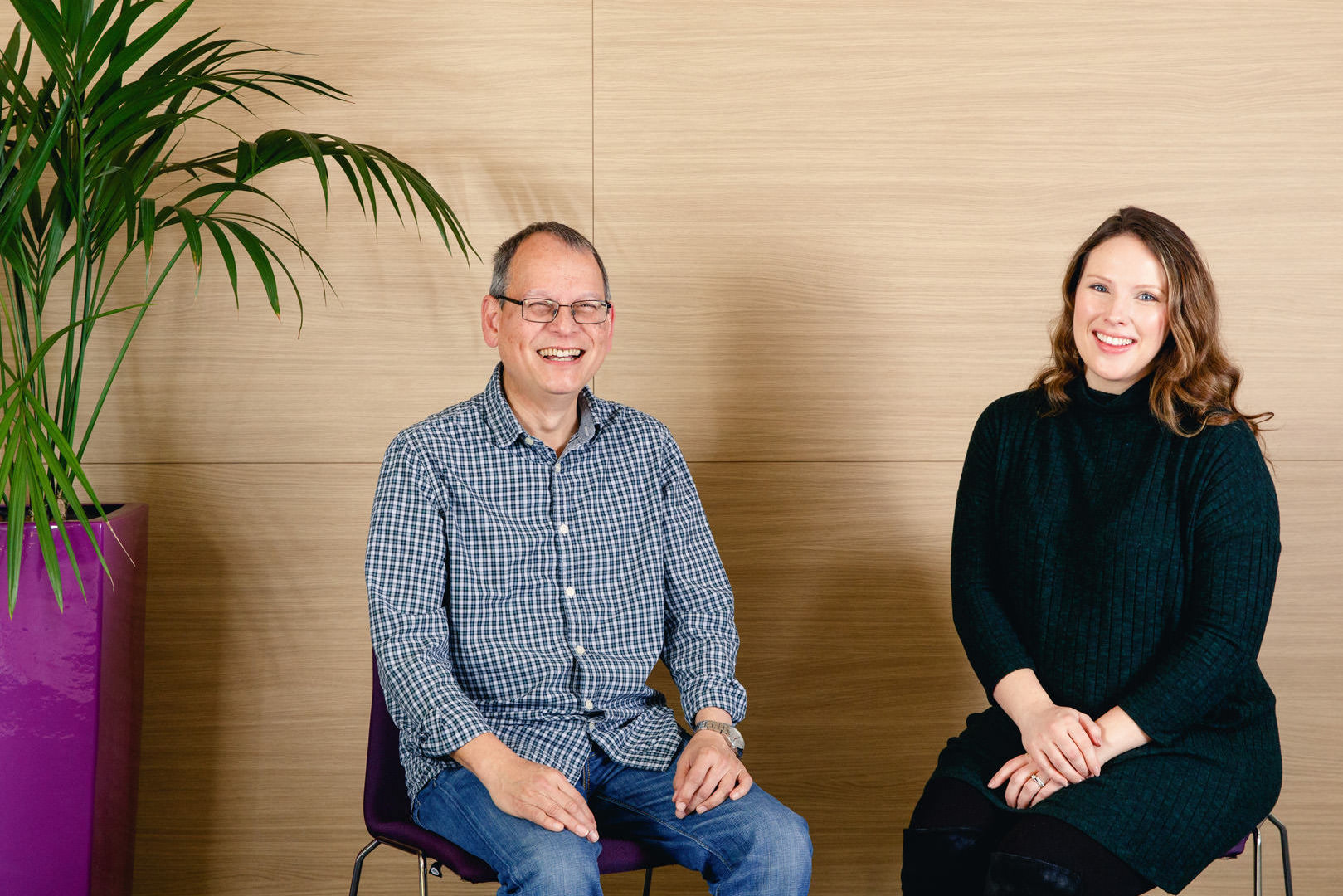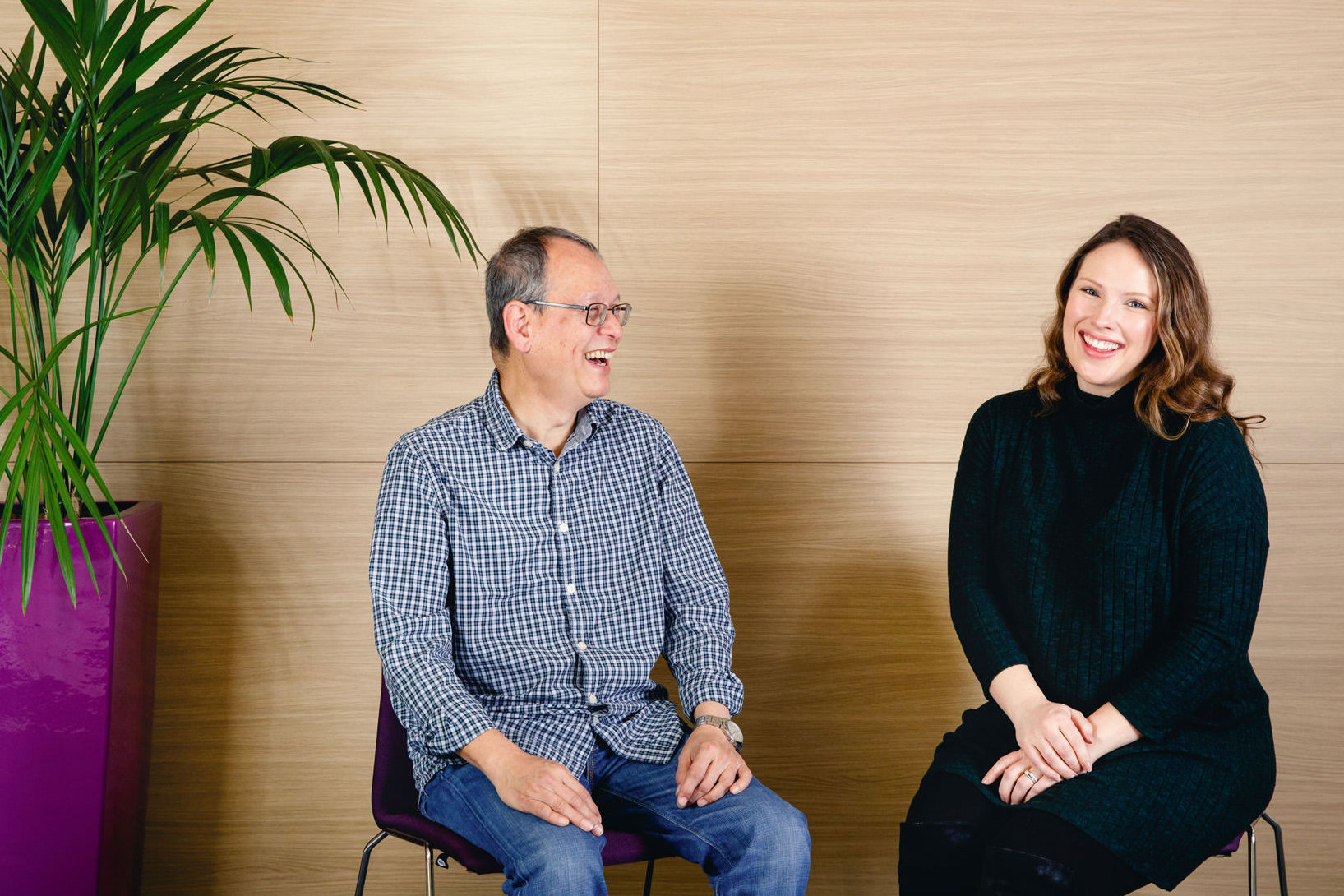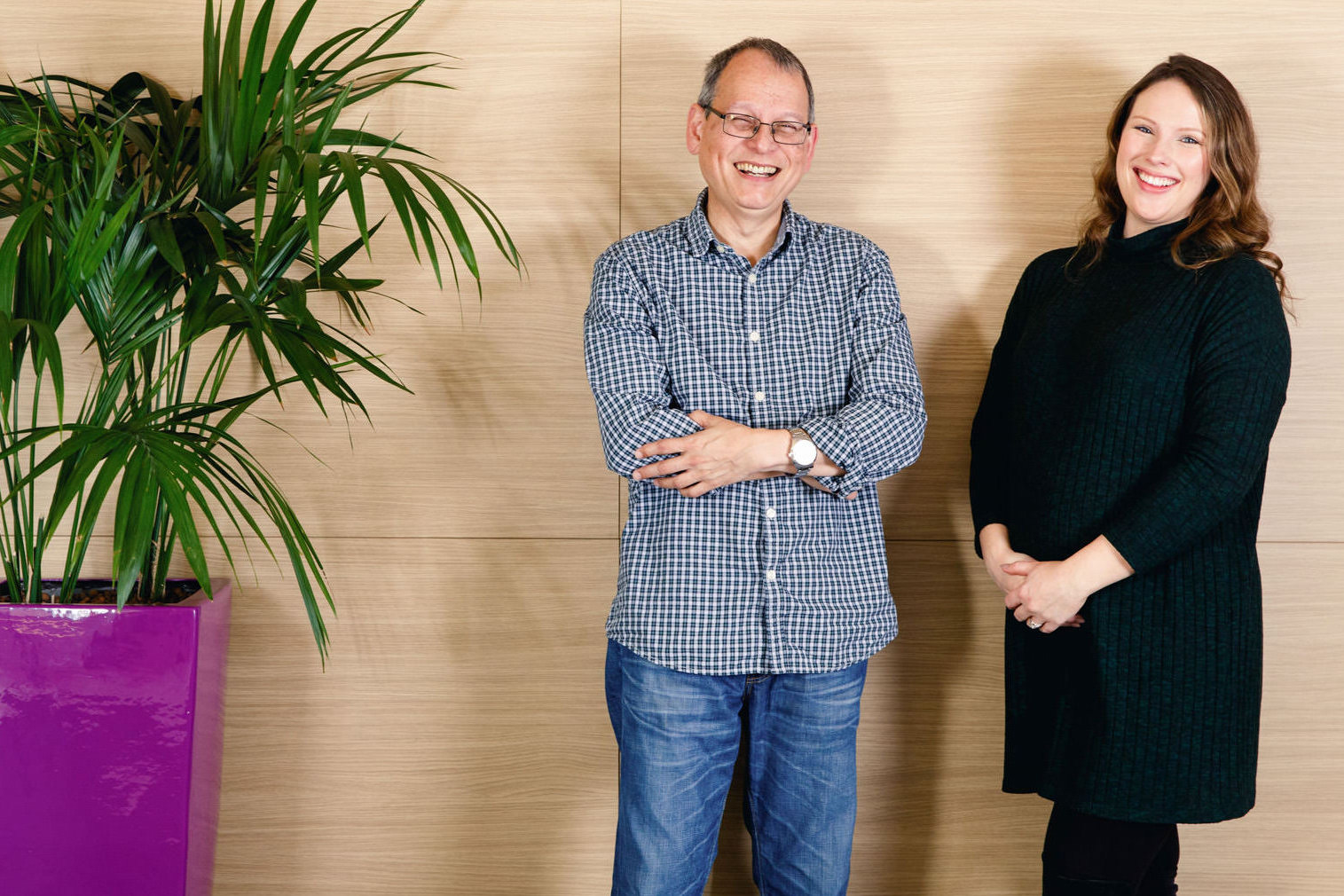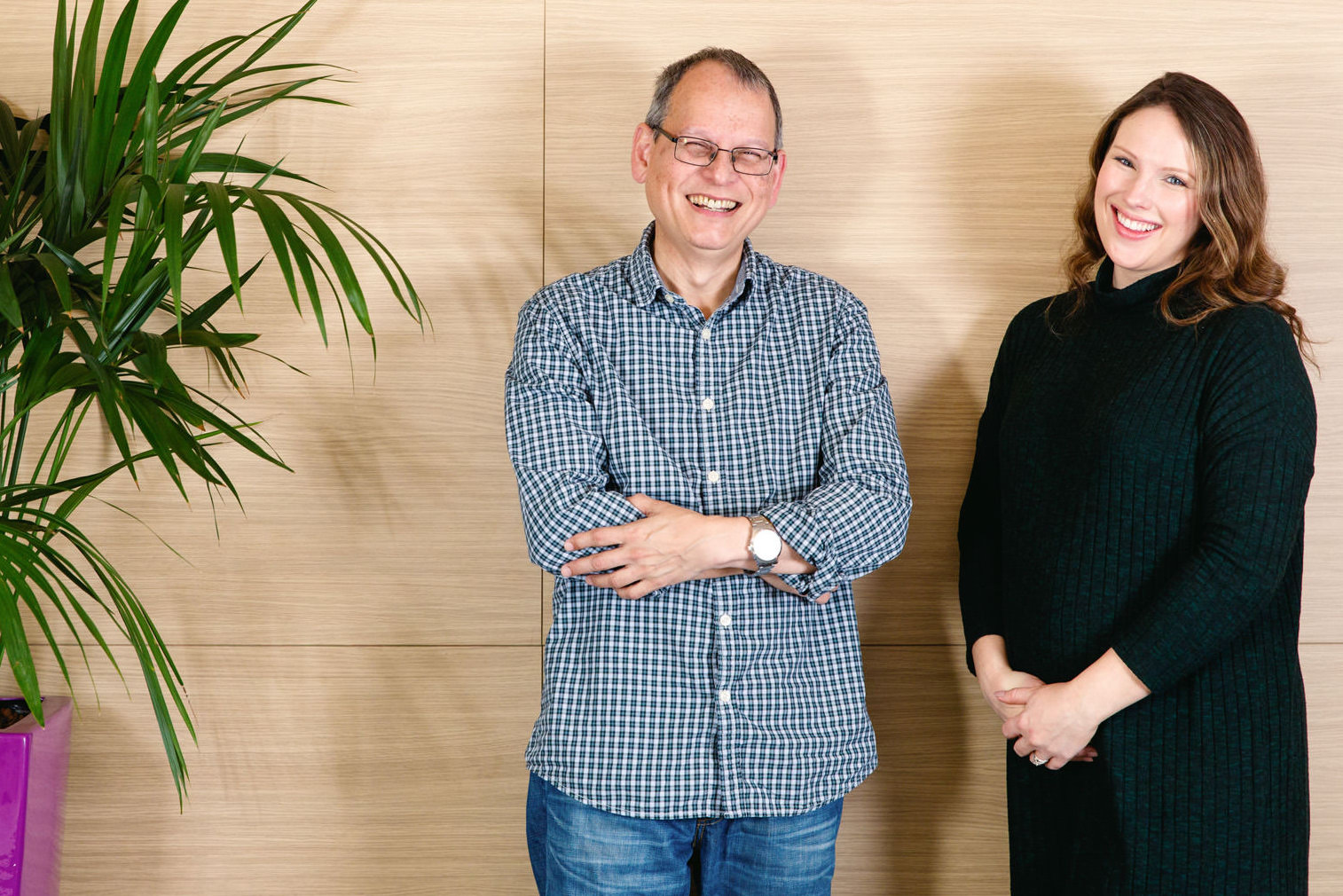Meet Stanley and Emily - a shining example of an intergenerational partnership in the workplace
Age-friendly Employer: FSCS
Stanley Nonis and Emily Room
Intergenerational
Stanley Nonis and Emily Room
Current role: Stanley is a Default Specialist and Emily is a Business Analyst
Age at time of interview: Stanley 60, Emily 28
Time at FSCS: Stanley 3 years, 8 months and Emily 3 years
Emily and Stanley have discovered that intergenerational learning is very much a two-way thing. Stanley’s shared the benefit of his previous experience, while Emily’s trained Stanley in investigation techniques. And for both, there have been some surprises along the way.
When Emily and Stanley started working together, they quickly dismissed stereotypical ideas about age and realised how much they had to learn from each other.
Stanley embraces new skills
“I met Stanley when I first joined the FSCS,” says Emily. “We were both working in the Defaults Team which investigates firms to ascertain whether or not we can deal with claims against them.”
“Our relationship developed when the team needed more people on the ground to work on some of our cases. Stanley jumped at the opportunity to learn more, so that’s when I started training him in how to investigate firms in terms of insolvency reviews.”
Emily takes on training role
Emily admits that it was unusual for her to be training an older worker. “I’d never worked with someone as old as Stanley in that type of situation before, but it was really enjoyable for both of us. I was quite taken aback by how fun I found it working with an older colleague. Stanley’s really engaging and enthusiastic, so it was simple to roll out the training to him.”
“The most surprising thing about working with Stanley was how fast he grasped everything,” says Emily. “I maybe naively assumed it might take a little bit longer for him to pick up on the work he needed to learn, but actually he was really quick.”
Two-way compliments
Stanley is equally complimentary about Emily. “For me, the most unexpected thing about working with a younger colleague is the fact that they bring so much energy and enthusiasm to the role,” he says.
“Working with Emily was inspirational. She made the training process interesting and exciting, and I was able to learn at a much quicker rate as a result.”
Read more
Learning from experience
Following the training, Emily has frequently made the most of the opportunity to ask Stanley for his advice, based on his years of business experience.
“With the many pieces of work I’ve done, I’ve found it’s so helpful that Stanley has been able to share the knowledge, wisdom and business intuition he’s built up over the years,” says Emily.
For example, Emily sought Stanley’s advice on a programme that was looking at how to help teams develop continuous improvement ideas. As Stanley had already experienced this type of programme in previous roles, he knew that they often don’t work very well in practice. He suggested some alternative approaches to Emily, which she used to adapt her original plan.
How to avoid project pitfalls
Stanley also helped Emily to avoid some common problems with delivering projects. “At BUPA I was involved with a lot of project work, and had seen some succeed and some fail miserably,” says Stanley. “I’d witnessed how important it is to encourage team members using empathy, and to be ready to adapt the journey that you’re on. I shared these ideas with Emily to enable her to avoid those pitfalls wherever possible.”
Energy and wisdom combined
As demographics shift and we see increasing numbers of older people in the workplace, intergenerational working will become more and more common. And, according to Emily and Stanley, that can only be a positive development.
“Older workers bring wisdom and experience, while younger workers have great energy and enthusiasm. Together, you have the best of both worlds,” says Stanley.
Emily adds: “I hadn’t really thought much about age in the workplace until I got involved in this project. I now feel quite passionate about the benefits of intergenerational workplaces. To be successful, businesses need to understand how to tap into the individual talents and skills of every employee, and encourage all ages to work together.”
“Stanley’s seen all sorts of different approaches tried and tested, and knows what works and what doesn’t. I’m always keen to seek his input”
Emily Room
Business Analyst, FSCS
Tips for Intergenerational Working
Having benefited from intergenerational working themselves, what tips would Emily and Stanley pass on to others?
Train and mentor all ages together
“Intergenerational working doesn’t happen by accident, so organisations need to take proactive steps to make it work,” says Emily. “For example, make sure that older and younger colleagues learn together by offering mentoring programmes that team them up together. Similarly, it’s important to make sure that there’s a real mix of people in the room during training courses so you get the full breadth of experience and knowledge.”
Work towards shared goals
Meanwhile, Stanley thinks it’s important to ignore age and focus on common goals instead. He says: “Age is irrelevant. You have to be open, listen to what your colleagues have got to say and tap into their thinking. What can they offer you? What do they bring to the table? And how can you help them? It’s a partnership. You can learn from each other, so think about how you can get the best from each other and work towards a shared or common goal.”






